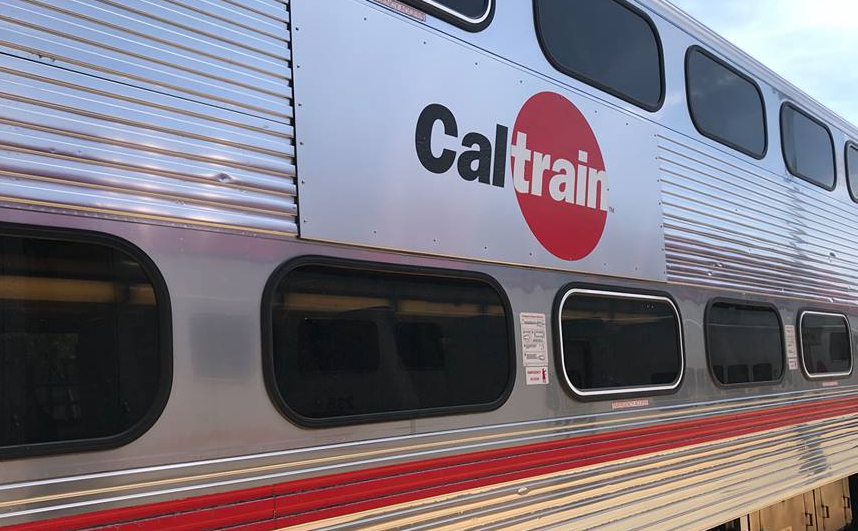A proposed comprise that aims to end a long-standing and costly tri-county dispute over the future governance of Caltrain is set to be heard at the San Mateo County Transit District (SMCTD) Board of Directors on Wednesday. The proposal is then slated to go before the Peninsula Corridor Joint Powers Board (JPB) on Thursday.
Called “Pathway Forward,” the plan aims to satisfy the desire of representatives from San Francisco and Santa Clara counties to have more respective control over Caltrain governance and operations, while also satisfying requests that the San Mateo County Transit District, also known as SamTrans, be repaid by its partner counties for the purchase of the Caltrain right of way.
Under the proposal, SamTrans would remain as Caltrain’s managing agency, but rather than the existing structure in which SamTrans hires and fires Caltrain’s executive director, those decisions would be made independently by the JPB, the governing body made up of representatives from all counties through which Caltrain travels. The compromise would mean that Caltrain’s executive director would no longer additionally hold the position of SamTrans general manager. The Pathway Forward proposal would also have the JPB Board appointing its own auditor and general counsel separate from member transit agencies.
As part of Pathway Forward, SamTrans would be re-paid what it calls a compromise total of about $35 million from its partner transit agencies in San Francisco and Santa Clara for the purchase of the Caltrain right of away. Click here to view the full Pathway Forward Proposal.
The dispute among partner agencies has been going on for more than 18 months and has “incurred hundreds of thousands of dollars of costs,” said SamTrans Acting GM Carter Mau in a letter to JPB’s chair and acting executive director on the proposal.
Mau says there are benefits to Caltrain’s existing governance structure, noting the transit agency has grown into the seventh largest commuter rail service in the U.S., and was also called the most efficiently run by JPB’s own consultant. Having SamTrans’ general manger, counsel and auditor lead Caltrain operations “has worked to avoid enormous duplication of effort and achieve great economies of scale,” he said. Nevertheless, Mau added, a compromise is needed to end the stalemate in the interest of riders, voters and taxpayers.
“From the SamTrans Board perspective, the governance process and the uncertainty that comes with it have caused staff fatigue and drain, have impacted our focus on addressing mission critical challenges of the railroads operation and the crisis brought on it from COVID, and have served as a distraction and detrimental in our efforts to successfully compete for state and federal funding,” Mau’s letter states.
Since Caltrain was established, SamTrans has been its managing agency while taking direction from the JPB. But before and after the passage last November of Measure RR, an 1/8-cent sales tax that marks Caltrain’s first dedicated source of funding, JPB members from San Francisco and Santa Clara have demanded the dissolution of the existing governance structure in favor of one providing them with more respective control over the transit agency. In response, SamTrans demanded repayment for the cost of purchasing the right of way.
Readers can access Wednesday’s SMCTD board meeting via Zoom.
Photo courtesy of Caltrain
Disclaimer: Adam Alberti, the publisher of Climate Magazine, is Managing Director at Singer Associates, Inc. SamTrans is represented by Singer Associates.






